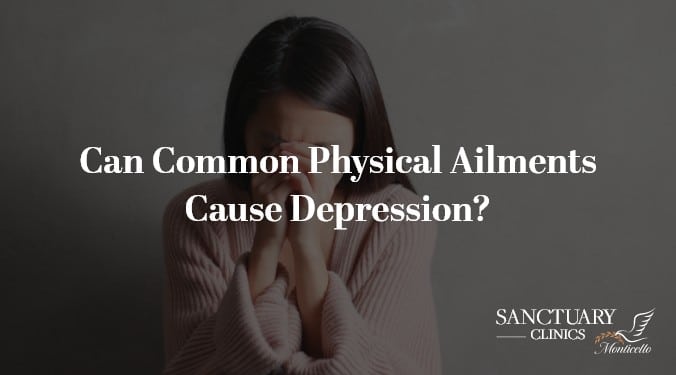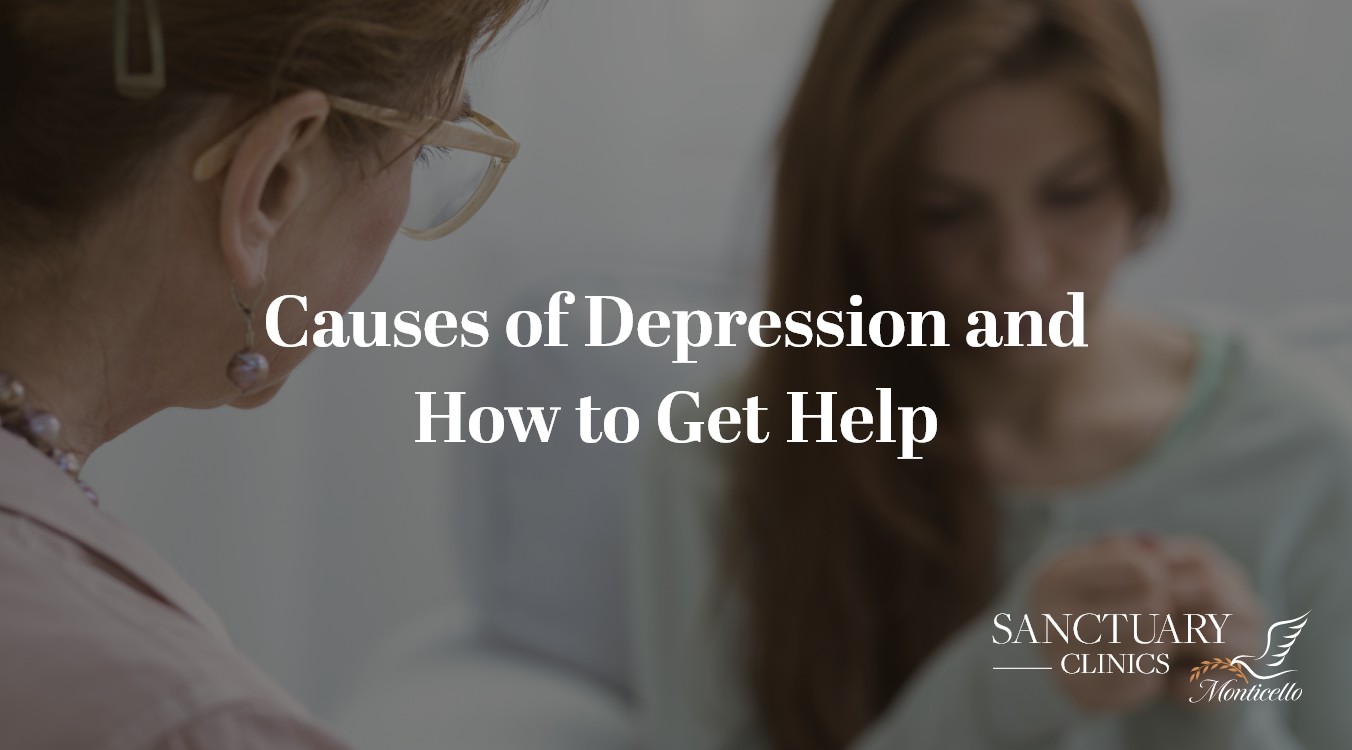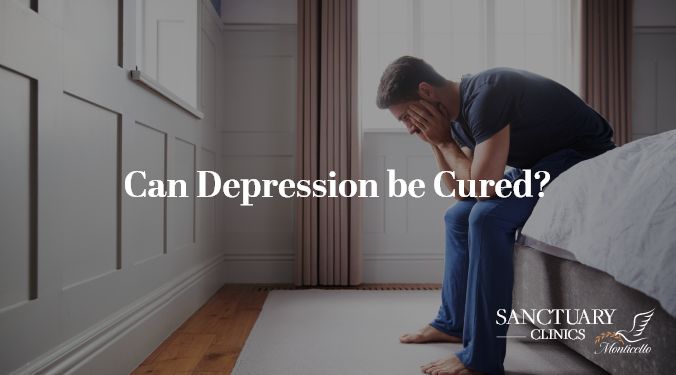Depression is a complex mental health condition which causes a person to have a low mood and may lead to having feelings of sadness, hopelessness, and disinterest in daily life. There are several different types of depression, and it manifests in a variety of ways. Some of the symptoms of depression include:
- Feeling sad and having a low mood
- Loss of energy or increased fatigue
- Loss of interest or pleasure in activities once enjoyed
- Trouble sleeping or sleeping too much
- Increase in purposeless physical activity e.g. restlessness or slowed movements and speech
- Changes in appetite which can lead to weight loss or gain
- Feeling worthless or guilty
- Gastrointestinal problems
- Difficulty thinking, concentrating, or making decisions
- Thoughts of death or suicide
As seen, depression can lead to a variety of issues which can hinder a person’s ability to be a happy and productive member of society, and it is necessary to get help to prevent this.
Furthermore, a key problem which has been noted in medical spheres is at times physical ailments can create changes in your body, which can lead to feelings of depression.
This is especially true in cases of chronic illness. Chronic illnesses are usually life-long, with little to no cure. Up to a third of people with chronic medical conditions have an element of depression. This may be because the presence of a chronic disease changes the social situation of a person, who then responds to the change by developing depression. Additionally, people who have chronic illnesses must adjust to both the illness and its treatment programs. The illness may affect the person’s independence and ability to move, and change the way they live and see themselves and/or relate to others. The changes which come with chronic illness are stressful and can cause significant despair or sadness.
In this article, we will look at some of these physical ailments which may lead to symptoms of depression.
1. Heart Disease
Mood disorders are more common in people with heart diseases as compared to their healthy counterparts. Due to the disabling nature of both heart disease and depression, this can lead to further health complications in someone’s life. Also, the risk of heart disease is higher in those who have depression. The two diseases thus function in a two-way relationship, where the presence of one can lead to the cause of the other. Additionally, the presence of depression is one of the warning signs you’re going to have a bad prognosis after heart problems such as a heart attack. This is due to some of the side-effects of depression which can make it harder to exercise, take medications, and do other things necessary to get healthy again after heart problems.
2. Cancer
Cancer patients sometimes react to their diagnosis negatively with feelings of anger, sadness, or anxiety. Another common issue associated with this is depression may also manifest itself after such a diagnosis. People with gastrointestinal cancers, e.g., stomach or pancreatic cancer, are especially prone to suffering from depression after such a diagnosis. This may be due to immune system changes or even genetics, as theorized by some doctors. Additionally, some cancer treatments may cause negative body side-effects such as nausea, pain and fatigue, anemia, and hair and skin problems. This can then contribute to further depression, making it harder to cope with the disease.
3. Diabetes
Diabetes and depression are closely related. This is because the management of diabetes, both type 1 and type 2, can be physically and emotionally draining. This in turn can lead to mood changes, and eventually depression. The presence of depression can then make it harder to follow a lifestyle which controls diabetes – such as exercising and eating healthy foods. This in turn leads to a vicious cycle where both the diabetes and depression get worse with time.
4. HIV/AIDS
HIV/AIDS is a major global health burden. However, some of the initial social stigma around this disease has reduced in recent years due to more information about how to manage it being widely available. Nevertheless, HIV/AIDS has had a complicated relationship with depression. The HIV virus itself can directly cause brain damage, leading to depression or HIV dementia.
In individuals living with HIV, depression may worsen the existing disease and lead to poorer health outcomes. Prior research has revealed depression may hasten the progression to AIDS and elevates the risk of mortality. Furthermore, depression has been reported to reduce adherence to antiretroviral therapy (ART), weaken its therapeutic effects, and compromise the medication’s desired outcomes. Having HIV and depression as comorbidities leads to more severe depressive symptoms, such as higher distress and self-stigma, loss of appetite, and poorer sleep quality.
5. Multiple Sclerosis (MS)
Depression is one of the most common symptoms of multiple sclerosis (MS) and may appear even before MS does. The disease itself might actually lead to depression. This is because MS may destroy the protective coating around nerves that help the brain send signals which affect mood. This would then lead to feelings of depression. Moreover, depression is also a side-effect of some the drugs which are used to treat multiple sclerosis, such as steroids and interferon. This leads to further feelings of depression in the person.
6. Chronic Pain
Chronic pain is both an emotional condition as well as a physical sensation. It is a complex experience which affects thoughts, mood, and behavior, and can lead to isolation, immobility, and drug dependence. Chronic pain sufferers are at times misdiagnosed, misunderstood, and miserable. The person’s family and friends can become fatigued from listening to their complaints, even though these complaints are usually valid. Additionally, the person’s identity may be significantly altered because they cannot engage in activities they once enjoyed. All these issues may lead to the manifesting of depression, which can then have additional side effects.
7. Vitamin B12 deficiency
The human body needs vitamin B12 to make red blood cells, nerves, DNA, and carry out other bodily functions. The most significant impact of vitamin B12 includes its supportive role in protecting the health of neurons and facilitating the production of neurotransmitters. Vitamin B12 is water-soluble and synthesized by the bacteria present in the human body. You get vitamin B12 by eating meat products, hence vegetarians or vegans are more likely to be deficient in it. Deficiency of vitamin B12 may lead to symptoms associated with depression such as fatigue, weakness, constipation, balance issues, mental fogginess, peripheral tingling, depression, and cognitive issues.
Conclusion
As seen in the article, it is confirmed there are indeed some physical ailments which may lead to depression in a person. This link is either direct or through some of the side-effects of the disease. Because of this, depression may lead to further deterioration in the health of a person. Nevertheless, depression is a condition which can be overcome with the necessary tools. If you know someone with a physical ailment which may lead to depression, make sure you offer support to them. This can be through emotional support, or in severe cases, you can even refer them to a therapist for specialized help.









